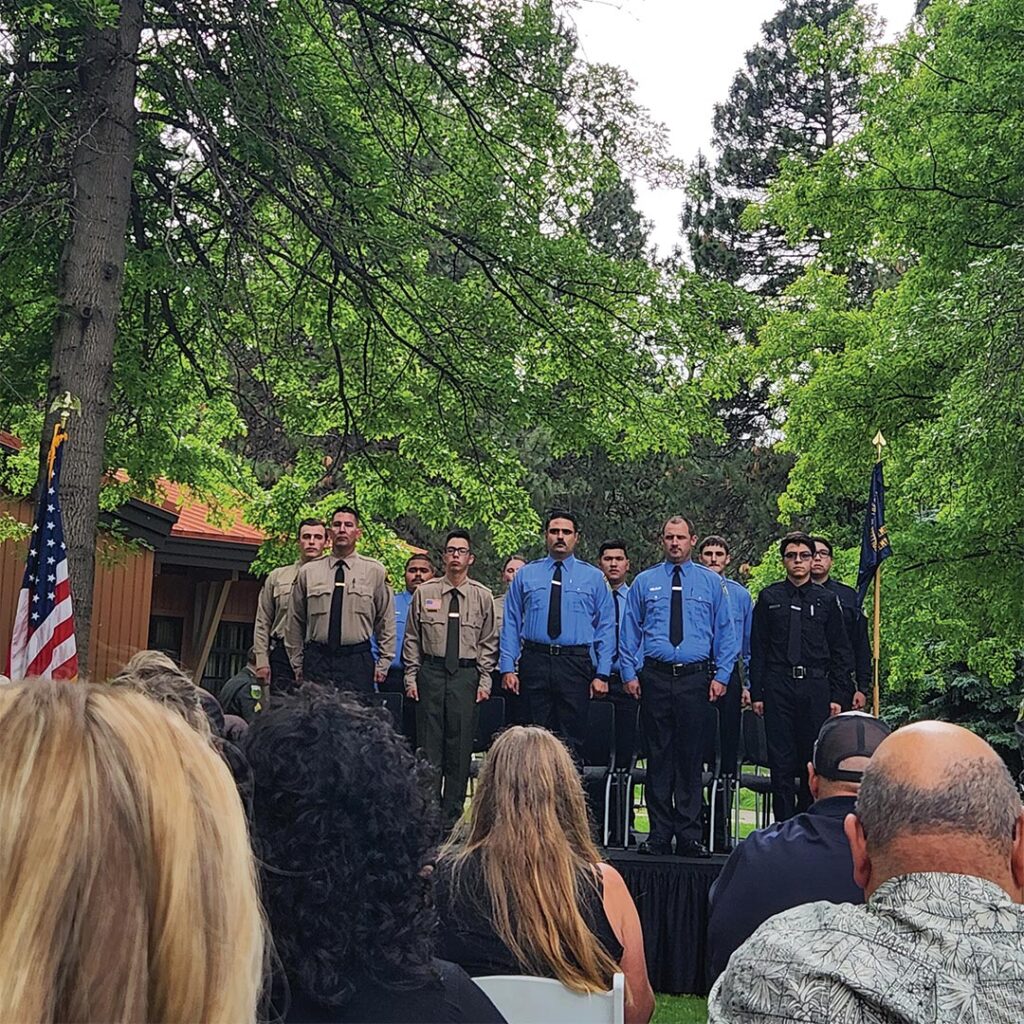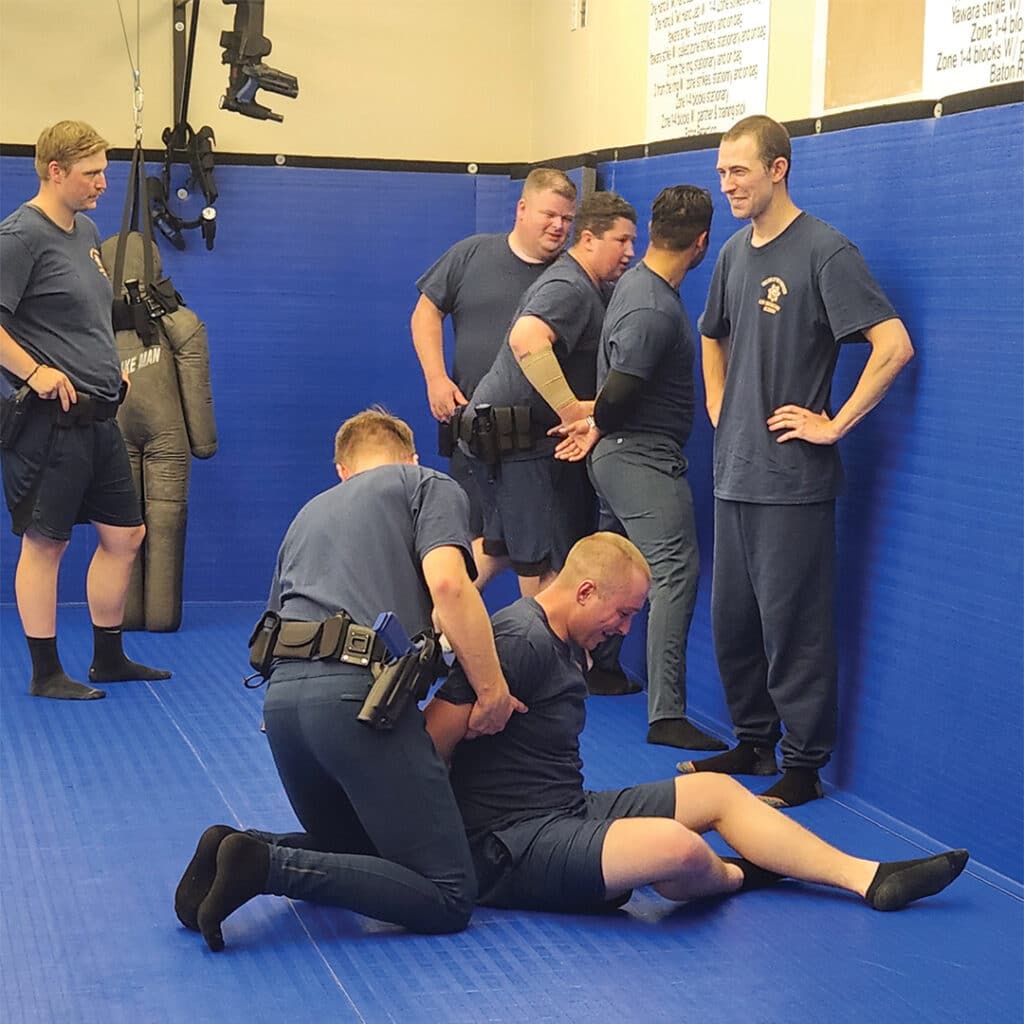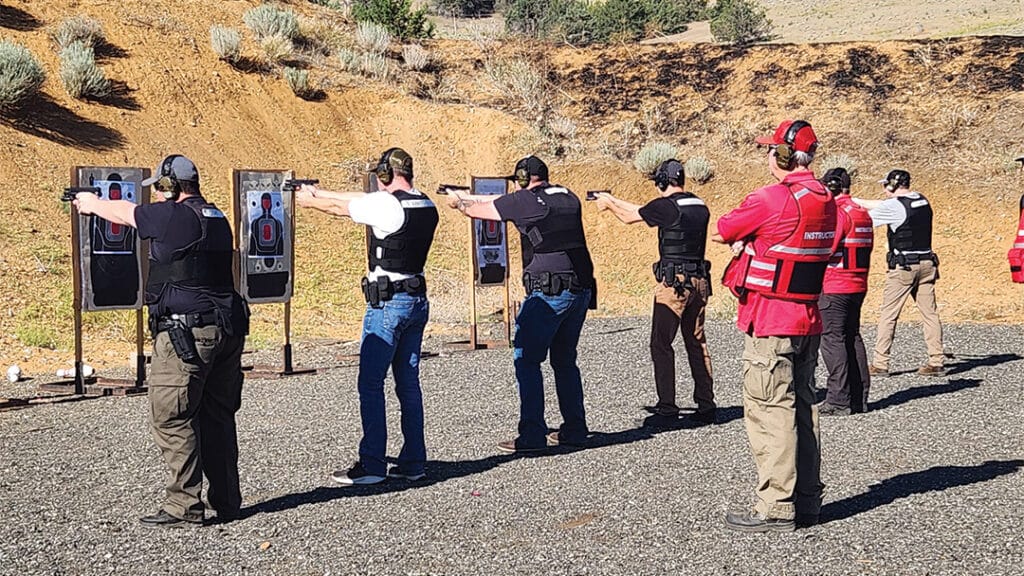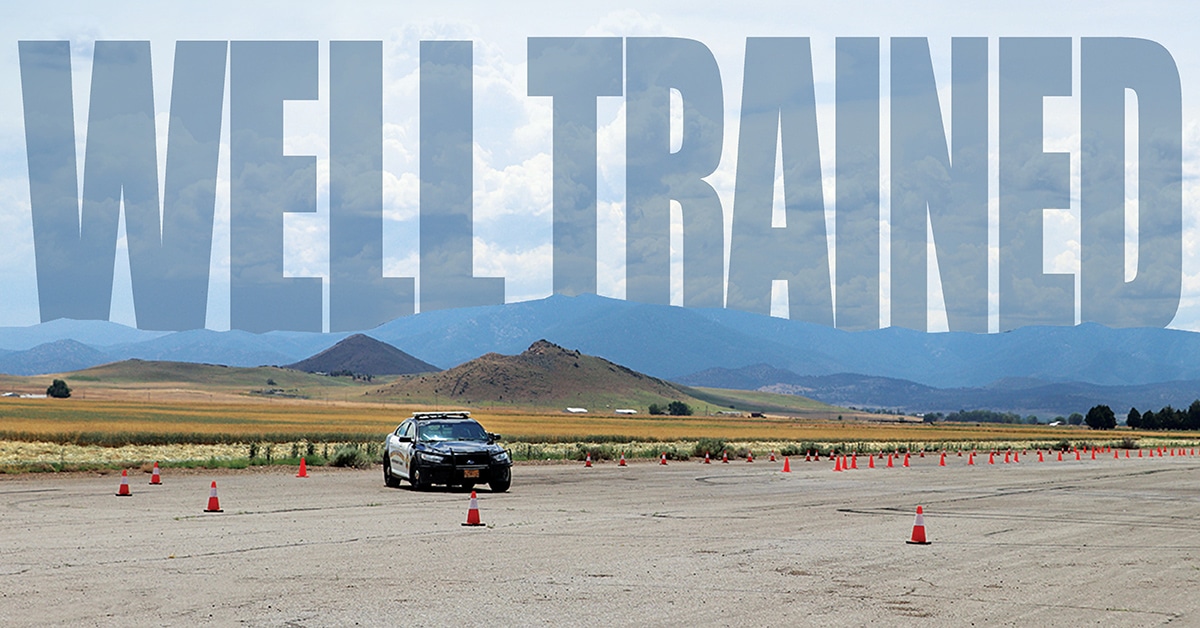Well Trained
Police Academy at College of the Siskiyous…
Mention “police academy” and it might conjure the raucous comedy and endless sequels of the 1980s and ‘90s. But in real life, cadets must face many rigorous mental and physical hurdles to enter a career in law enforcement. And one of California’s top-academic police academies is found at the base of Mount Shasta, at the College of the Siskiyous in Weed. “Cadets spend 22 packed weeks of approximately 1,000 hours of training that earns them 43 units of coursework,” explains Louis Mero, director of the academy. “These cadets will complete two-thirds of an AA/AS degree in a little over five months. Once they graduate, they’re eligible to work as peace officers anywhere in the State of California.” Basic police academies vary from state to state, but there is a surprising degree of program variation within the state. “Some academies are strictly department employees, meaning you have to be hired by that department to go to their academy. For example, the San Francisco Police Department and the California Highway Patrol are so large that they run their own in-house police academy and advanced officer training. This allows them to deliver content and develop culture from day one and focus on specifics that their agency has determined are of critical importance to their training. The other side of the spectrum are college-based presenters with a mix of agency employees and self-sponsored cadets, meaning anyone who can meet eligibility requirements is welcome to attend.”

California has 47 academies, most of which are college-based programs. According to Mero, Weed’s academy is fourth in the state academically. He attributes that success to not only the unique modular way that information is presented, but the caliber of instructors. “We use a ‘trade school’ practical approach to our instruction. Most of our instructors are currently employed in a regional agency in one of the 13 counties that we serve,” Mero says. “Each instructor is specifically selected because they are well-established in their career and/or at the cutting edge of their law enforcement focus. They bring that focus with the passion, experience and knowledge into the classroom.” Mero also notes the POST-certified academy’s emphasis on keeping the cohort size reasonable. “If you have a class of 150 students, you don’t have the time to devote the energy to one student. With class sizes set at about 25, we have more time to be able to understand our students. We know each of our students’ capabilities and we get a chance to learn who they are as people. This allows us to effectively monitor their growth. They can’t hide in the middle of the pack because it will be noticed, and they will get called out. That craftsman style of instruction is a luxury for us that we relish.”

One of the academy’s other big selling points is a robust job placement program. “Very few academies in the state go to our level of investment for our students. If I’m being honest, it’s a logistical pain to create these recruitment days. Our purpose is to train them well, but my role is to get these students hired, so it’s incumbent upon me to create opportunities and intentional introductions with agencies seeking cadets. To that end, we’ve crafted the schedule of our last section to be only four days a week so cadets have a workday off to be able to do medical visits, psych visits and other human resources processes necessary to get hired.” Mero also notes the positive social and economic impacts this program has on the entire North State, given that a huge part of successful law enforcement starts with positive community involvement. “There is substantial benefit to having local officers trained locally who stay in our communities. Just about every law enforcement agency in Siskiyou County has officers who have completed our program. It shows that North State residents have access to high-quality local training and can then get employed by local agencies, have a good-paying job with good benefits and raise their families.”

As if outstanding academics, high-level instruction and job placement wasn’t enough to sell a recruit on the academy, Mero says there’s always the view. “Our campus is uniquely attractive and our county is full of amazing things to do and see. We regularly have people who come up from the South Bay area for classes specifically because of the area. They can attend training down there, but they’d rather spend two weeks up here.”

Mero is also proud of the Academy’s reach. “I not only regularly have students from the 13 North State counties, but even from far Southern California, places like San Diego, San Bernardino, even Temecula. I ask them, ‘How did you find us?’ And they’ll often say, ‘I talked to a friend who attended, or knew somebody who attended our program.’ Then they look at the reasonable cost variables, they look at the quality of our program and the hiring success of our students, and they often make the easy choice.” Mero adds with a laugh, “I always tell them they can drink the water here, too.”
College of the Siskiyous, Weed Campus
800 College Ave., Weed • (530) 938-5555
College of the Siskiyous Police Academy
(530) 938-5990
www.siskiyous.edu/cte/adj/academy.htm
Article written by:
Megan Peterson has been a freelance storyteller for more than two decades, with writing credits ranging from National Geographic to the Sundance Channel. She also brings a background in marketing and audio tours, and has traveled and worked on six continents. Megan currently lives in Northern California with her family and a menagerie of pets.




